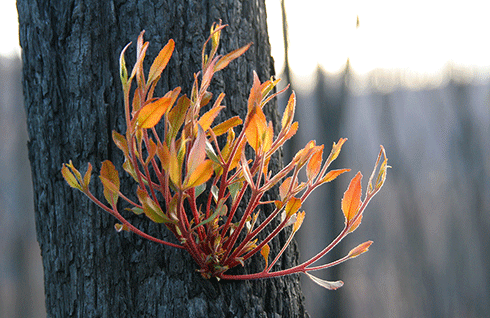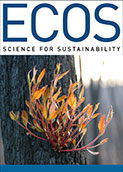
|
Published: 25 August 2014
Scientists say logging linked to Black Saturday fire severity
Logging in Victorian forests was partly to blame for the severity of the 2009 Black Saturday fires reaching the intensity of the nuclear explosions at Hiroshima and Nagasaki, leading Australian ecologists have found.

|
|
Forest regrowth after the Black Saturday fires. Credit: CSIRO, Robert Kerton
|
A team of scientists from the Australian National University (ANU) and University of Melbourne have examined how logging affects fire severity in wet forest in Victoria, which were hit by the deadly Black Saturday Bushfires, and found the logging practices helped make the fires more severe.
‘It’s sad and very sobering to have found that human disturbance added to the severity at which the fires burned,’ said Professor David Lindenmayer, from the ANU Fenner School of Environment and Society.
The findings will help fire and forestry authorities understand how to better manage wet forests to prevent future bushfire disasters.
The Black Saturday Bushfires killed 173 people and destroyed more than 2000 homes in Victoria in February 2009, fuelled by 46°C temperatures and winds more than 100 km per hour.
The research – led by Dr Chris Taylor from the University of Melbourne, along with his colleague, Professor Michael McCarthy, and Professor Lindenmayer – was published in the latest issue of Conservation Letters.
The researchers found that very severe fire leading to canopy consumption almost never happened in wet forests with trees less than 7 years old, and was infrequent in trees more than 40 years old.
‘Logging actually makes a forest more likely to have a fire at a much higher severity than otherwise would be the case,’ Professor Lindenmayer said.
Since 1964, more than 47,000 hectares of wet forest have been logged with further logging planned for 17,600 hectares in the next five years.
Professor Lindenmayer said current wet forest logging could impact on future generations, and governments needed to change forestry policies to protect people, towns and the forest itself.
Source: ANU



